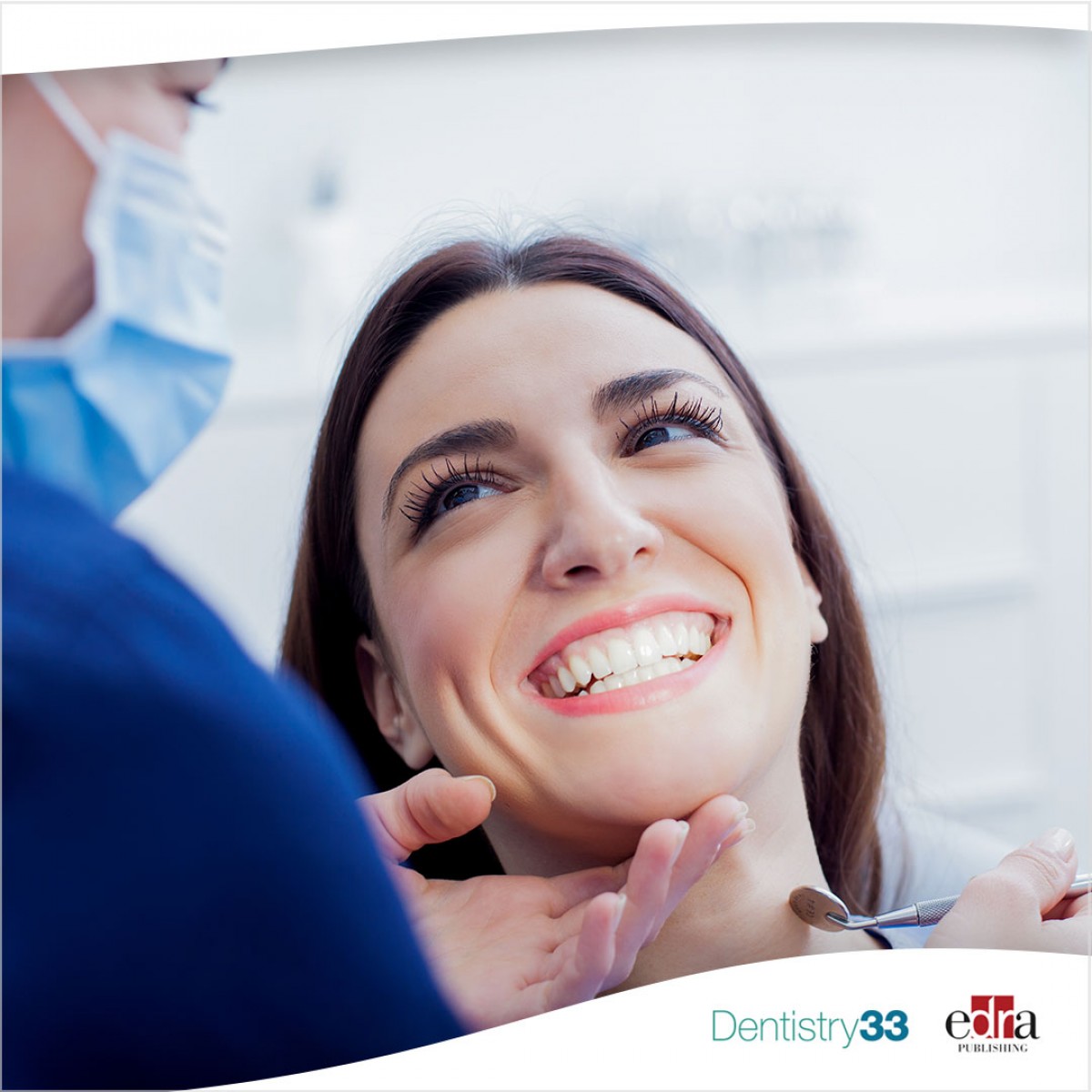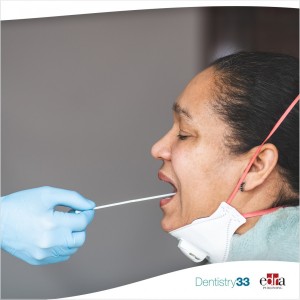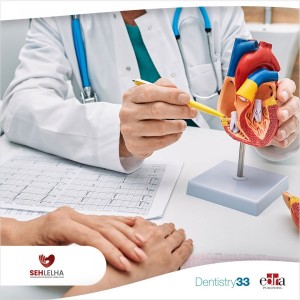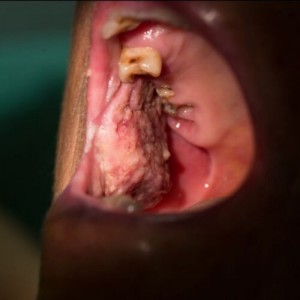
Poor oral health may contribute to declines in brain health
Taking care of your teeth and gums may offer benefits beyond oral health such as improving brain health, according to preliminary research presented last month at the American Stroke Association’s International Stroke Conference. According to a news release, the global meeting is for researchers and clinicians dedicated to the science of stroke and brain health.
Studies have shown that gum disease, missing teeth and other signs of poor oral health, as well as poor brushing habits and lack of plaque removal, increase stroke risk. According to the American Stroke Association, stroke is the number five cause of death and a leading cause of disability in the U.S.
Previous research has also found that gum disease and other oral health concerns are linked to heart disease risk factors and other conditions like high blood pressure.
Study author Dr. Cyprien Rivier, MD, a postdoctoral fellow in neurology at the Yale School of Medicine, said in the news release that what hasn’t been clear is whether poor oral health affected brain health, meaning the functional status of a person’s brain. He said scientists are now able to better understand these issues using neuroimaging tools such as magnetic resonance imaging or MRI.
“Studying oral health is especially important because poor oral health happens frequently and is an easily modifiable risk factor – everyone can effectively improve their oral health with minimal time and financial investment,” he said.
Just as healthy lifestyle choices impact the risk of heart disease and stroke, they also affect brain health, which includes one’s ability to remember things, think clearly and function in life. Three in five people in the U.S. will develop brain disease in their lifetime, according to estimates from the American Stroke Association, a division of the American Heart Association.
Between 2014 and 2021, researchers analyzed the potential link between oral health and brain health among about 40,000 adults (46% men, average age 57 years) without a history of stroke enrolled in the U.K. Biobank. Participants were screened for 105 genetic variants known to predispose people to have cavities, dentures and missing teeth later in life, and the relationship between the burden of these genetic risk factors for poor oral health and brain health was evaluated. Signs of poor brain health were screened via MRI images of the participants’ brains.
The analysis found:
- People who were genetically prone to cavities, missing teeth or needing dentures had a higher burden of silent cerebrovascular disease, as represented by a 24% increase in the amount of white matter hyperintensities visible on the MRI images.
- Those with overall genetically poor oral health had increased damage to the fine architecture of the brain, as represented by a 43% change in microstructural damage scores visible on the MRI scans. Microstructural damage scores are whole-brain summaries of the damage sustained by the fine architecture of each brain region.
“Poor oral health may cause declines in brain health, so we need to be extra careful with our oral hygiene because it has implications far beyond the mouth,” Rivier said. “However, this study is preliminary, and more evidence needs to be gathered – ideally through clinical trials – to confirm improving oral health in the population will lead to brain health benefits.”
The analysis was limited by the fact that the UK Biobank includes only people who reside in the U.K., predominantly of European ancestry (94% of the U.K. Biobank participants reported their race as white vs. 6% reported as mixed, Black British, Asian British or other). More research must be conducted among people from diverse racial and ethnic backgrounds.
Stroke Council member Dr. Joseph Broderick, MD, a professor at the University of Cincinnati Department of Neurology and Rehabilitation Medicine said that while the study results don’t demonstrate that dental hygiene improves brain health, the findings are “intriguing” and should prompt more research. He is also the director of the University of Cincinnati Gardner Neuroscience Institute and was not involved in this study.
“Environmental factors such as smoking and health conditions such as diabetes are much stronger risk factors for poor oral health than any genetic marker – except for rare genetic conditions associated with poor oral health, such as defective or missing enamel,” Broderick said. “It is still good advice to pay attention to oral hygiene and health. However, since people with poor brain health are likely to be less attentive to good oral health compared to those with normal brain health, it is impossible to prove cause and effect. Also, genetic profiles for increased risk of oral health may overlap with genetic risk factors for other chronic health conditions like diabetes, hypertension, stroke, infections, etc. that are known to be related to brain imaging markers.“
Co-authors are Drs. Daniela Renedo, Adam H. de Havenon, Sam Pyabvash, Kevin N. Sheth and Guido J. Falcone.
The study was funded by the American Heart Association through the Bugher Center for Hemorrhagic Stroke Research Network (AHA grant #817874). U.K. Biobank data were accessed using project application 58743.
A summary of this news release was posted on Odontologia33.
 Related articles
Related articles
Periodontology 22 February 2023
Researchers from Hiroshima University found a correlation between periodontitis and fibrosis in a sample of 76 patients with heart disease.
There are several disorders that arise related to menopause including osteoporosis and a predisposition to heart disease. In menopause, women can also frequently develop various disorders of the oral...
Oral surgery 18 June 2024
The interplay among a dental procedure, infective endocarditis, and an acute ischemic stroke
This case report highlights the rare association among a dental procedure, infective endocarditis, and an acute ischemic stroke.
In an editorial published in Hypertension and Vascular Risk, clinicians said more than one billion people in the world suffer from the most advanced forms of periodontitis.
Oral Hygiene & Prevention 13 August 2021
Authors:Francesco Fugazzaro, Monica Giani, Umberto Pagliaro, Lorenzo Franchi, Michele Nieri
OBJECTIVES. The aim of this study was to evaluate the number of strokes of an interdental brush required to remove interproximal plaque; zero, one, two, four, eight, and sixteen interdental brush...
 Read more
Read more
Implantology 17 October 2025
To investigate whether cross-section imaging influences the planning and therapy of standard implant cases in the posterior mandible.
Editorials 17 October 2025
In her new role she is providing direction and supporting initiatives that elevating UFCD's translational research agenda.
Products 17 October 2025
Presto Dental, a new brand affiliated with the Abra Health Group, proudly announces the grand opening of its flagship Connecticut location in Bridgeport. This state-of-the-art.
News 17 October 2025
The American Association of Oral and Maxillofacial Surgeons (AAOMS) celebrated the achievements of more than 30 individuals at the association’s 107th Annual Meeting, Scientific Sessions and...
Phenom, an applied AI company that helps organizations hire faster, develop better, and retain longer, announced The Aspen Group (TAG) earned the Brandon.















